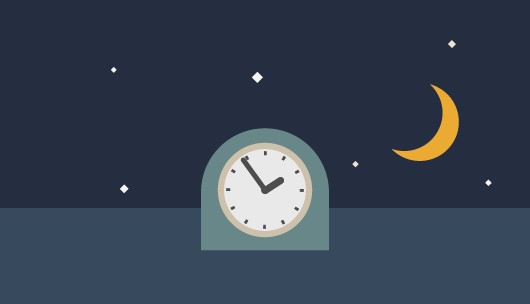Career advice
What your sleep reveals about your job satisfaction

A bad day at work can affect you late into the night.
Because if you are stressed, there is a much higher probability that you will toss and turn in bed and have to start the next day tired and out of energy.
In the latest survey of IDA members' stress levels, 38 percent of members who feel stressed say that they have had difficulty sleeping within the past 14 days. The same applies to just 8 percent of the members who do not feel stressed.
According to Birgitte Rahbek Kornum, a sleep researcher at the University of Copenhagen, sleep is one of the first things that is affected when we are stressed.
"Stress triggers different neurotransmitters in the brain, and certain signaling pathways become more active than usual. Their function is to keep us awake, and it lies deep in our biology to forgo sleep if we are exposed to something threatening".
"It makes good sense evolutionarily, but in our modern life, it is impractical, because we often experience things as stressful, even if they are not in fact life-threatening", explains Birgitte Rahbek Kornum.
In fact, the experience of not feeling recognized for your efforts by your colleagues and manager is enough to ruin a night's sleep.
According to a Danish study based on more than 8,000 people, the risk of sleep problems triples if you experience that the balance between effort and reward is getting worse, and similar studies from Sweden and Finland have also demonstrated the connection.
"It's not so surprising, because everything we do during the day has an influence on how we sleep at night", explains Birgitte Rahbek Kornum.
The brain removes noise when you sleep
When you're tired and groggy after a night of poor sleep, it's because the brain hasn't had a chance to recover. Because it doesn't go to sleep when you sleep, on the contrary, it works at high pressure to clean up and optimize itself.
"The brain has a network of neurons that send signals to each other. The most used networks must be strengthened, and those that are not used or that have arisen due to an error must be removed in order to lower the noise level", says Birgitte Rahbek Kornum.
Even small sleep deficits of half an hour to a full hour each night have a negative effect on how we feel and think.
"If you sleep too little, you lose cognitive flexibility. This means that it is more difficult to change strategy if you are solving a task and experience problems. In addition, one's attention and ability to concentrate deteriorate”.
"You also become less able to control your emotions and instead become more angry or upset", explains Birgitte Rahbek Kornum.
Several studies that have investigated the connection between sleep and exam results also show that performance is closely linked to how much you sleep.
"There is no doubt. It is always those who sleep the most who perform best", summarises Birgitte Rahbek Kornum.
Employers should protect their employees' sleep
When sleep is one of the most important factors for performance on the job, employers should also be much more interested in how their employees sleep, Birgitte Rahbek Kornum believes.
However, it is a cause for concern when employers want to interfere in their employees' privacy and, for example, track their exercise habits and sleep. But it is also possible to help your employees sleep better by introducing general measures that do not overstep privacy boundaries.
"An obvious place to start is to have a policy that you don't send emails to people in the evening, because they often feel a responsibility to reply, even if it's 11pm and they're going to bed".
"If you have offices in many different countries, you also have to try to set some framework for when you hold Zoom meetings, so that you don't sit and stare into a screen late into the evening when you have to talk to colleagues or customers in the U.S.”
Make sure you get daylight
Regardless of whether you feel stressed or not, you may experience poor sleep at times, and here it is important to have realistic expectations for your sleep.
"With age, you wake up more at night, and that is completely natural. The brain switches between deep and light sleep, and the older you get, the easier you wake up. It starts when you are over 30, and it definitely happens when you turn 40”.
And then, according to the sleep researcher, there is one thing in particular that is important for a good sleep. We all know to avoid caffeine, alcohol, screen lights and vigorous exercise before bedtime.
"But if you want to do something that really makes a difference, you have to make sure you get daylight. If you sit in front of a computer, you most likely don't get enough daylight, and this is really something that disturbs the sleep regulation".
"So it's a good habit to cycle to work or go for a walk for fifteen minutes during the lunch break, so that the brain's internal clock is set correctly".